Integrate Your Life, Redesign Your Future – Alan Chang
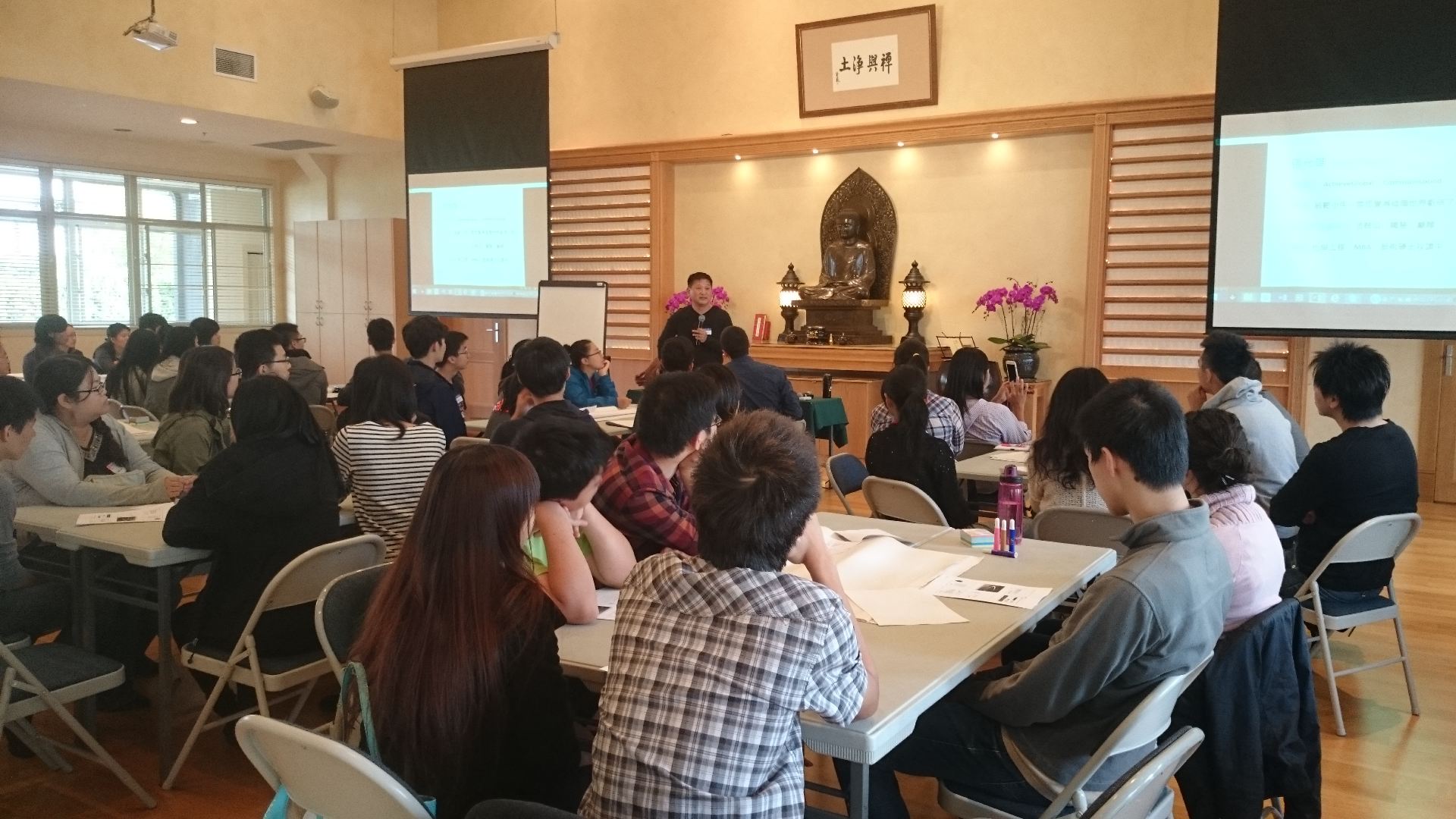
First of all, I would like to thank the fashi’s, volunteers , participants, Alan Chang and everyone who made this wonderful event happen. I learned a life-transforming lesson from this workshop – it had a positive and significant impact on my future path of life and career. Like Alan said, usually people pay a lot of money to get a training like this. In the temple, not only we got it for free, it was filled with wisdom, care and encouragement. I would like to share three most inspiring lessons I learned from this workshop.
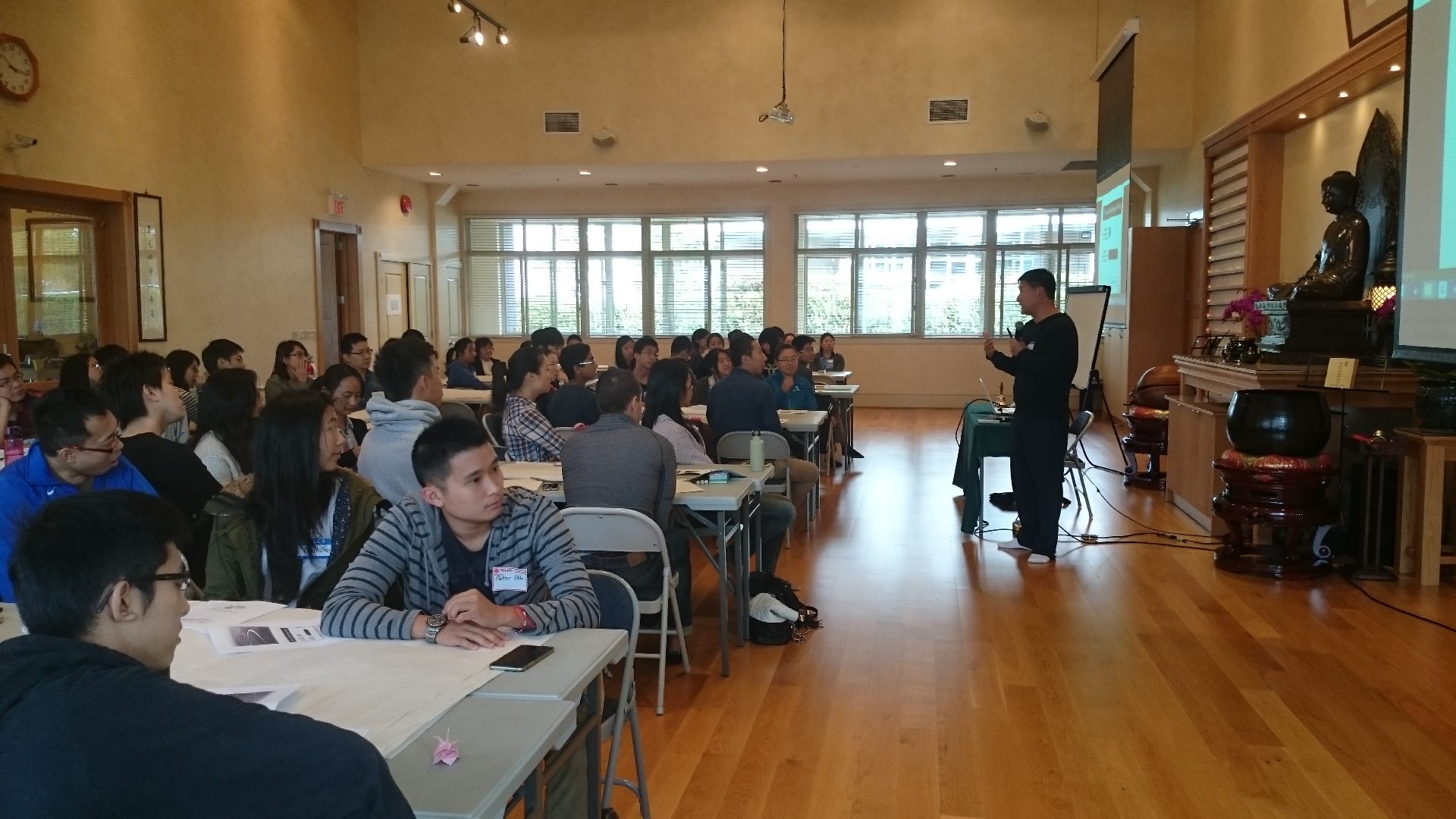
First lesson that was about “To succeed, we got to do what we are passionate about!” This saying is quite popular in the western culture, especially among the young professionals. However, it is hard to have the courage to actually do it because it is not the mainstream, and people could easily get confronted by the fear and majority which is dominated by philosophies like and “playing safe”, “work is work…” etc. Because the fear we all carry inside, we probably all had this in our mind “…it is safer to follow the crowd although they may be heading to the wrong direction”. Out of all the confusion and fear from the world, it is very encouraging to hear an actual person who tested the theory and succeeded, also very enthusiastically and genuinely saying “yes, doing what we’re passionate about is the way!” To make it even better, it is from a person who practice Dharma, so it is more trustworthy! As a result, hearing Alan’s teaching really helped me overcome doubts and fear, and bringing me back to the right path. I decided to once again start pursuing what I truly love instead of being pushed around by what I fear!
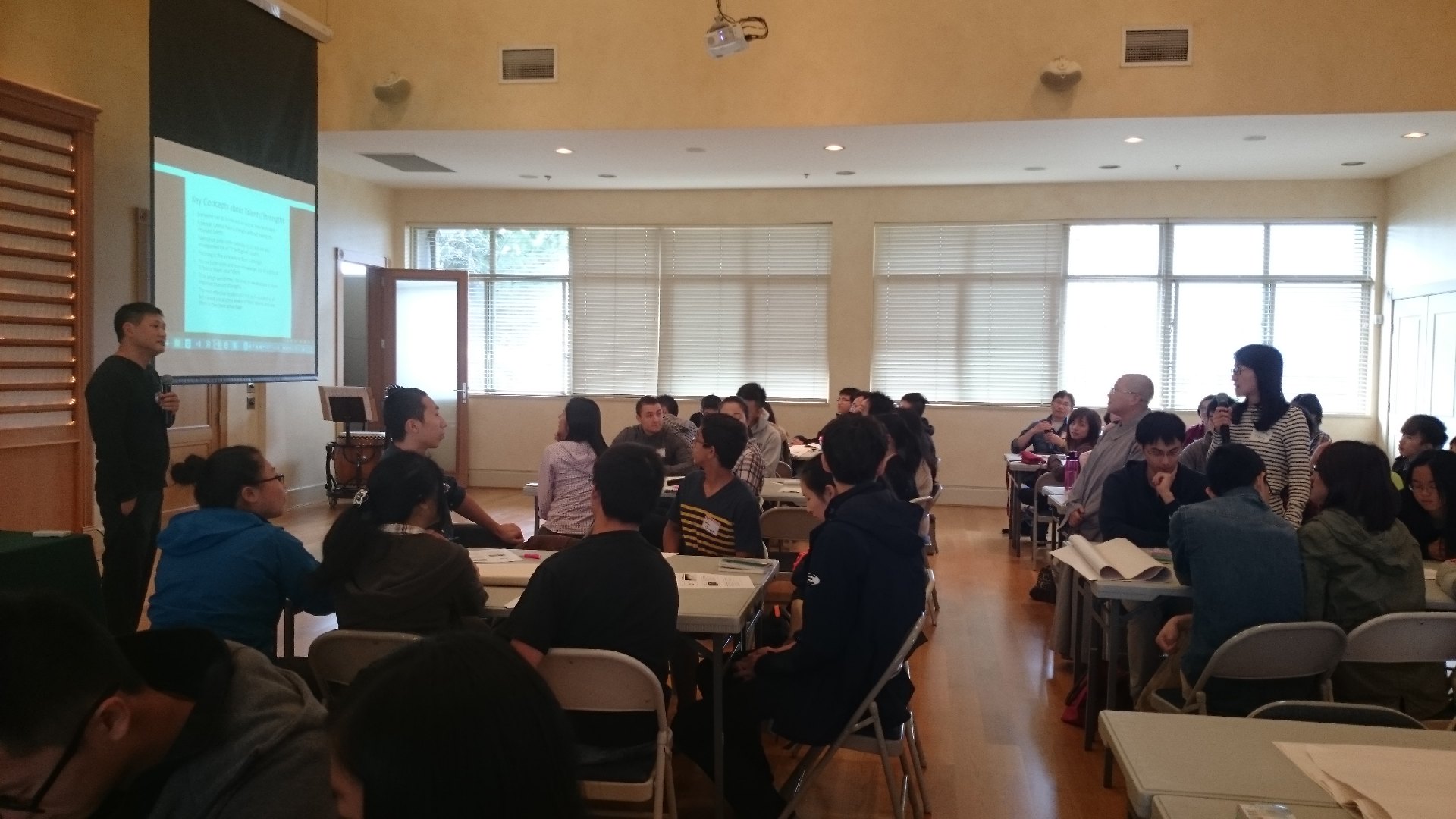
To do what we love, first we have to find out what we’re passionate about! This is usually the same as what our strength is, so the second lesson is about how to find out what our strength is. Again, I’ve been exposed to many theories like this, but the exercises he guided us to do really help us understand the theory deeper and really got awaken by it so we would more likely to apply it in real life. One insight that really sparked in my mind was that, he made us write down our own strengths and then encourage us to ask friends to see if they see the same strengths in us. I happen to be sitting with a few friends. I did it and notice the strengths they see in themselves are different than what I see in them. This verified the theory that Alan shared. It was that our strength is sometimes hidden from ourselves. He explained, sometimes the people around us can see our strength better than ourselves. For example, his boss saw the strength in him that he wasn’t aware of and pushed him out of his comfort zone and helped him see it. This really inspired me to explore what are hidden inside myself, and be more open to people around me.
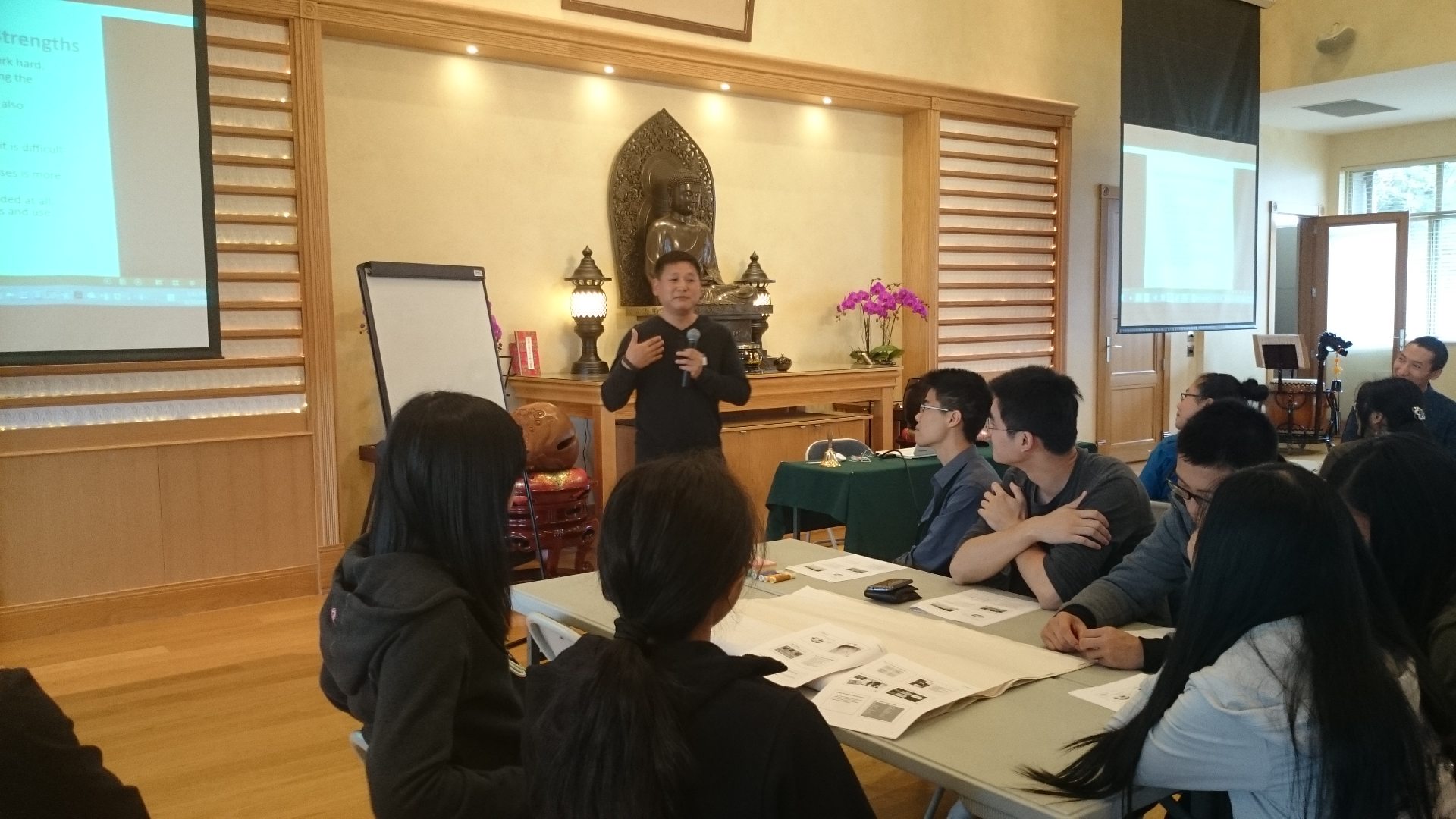
And then here comes the best part. The part that touches my heart the most although I hurt quite a bit. Well, pain cultivates wisdom and compassion, right? It is where I got to actually apply Dharma methods and what Alan taught in real-world situations. Before jumping into it, there was another trick that Alan shared which was about “how to turn weakness into strength”, and I really liked it.
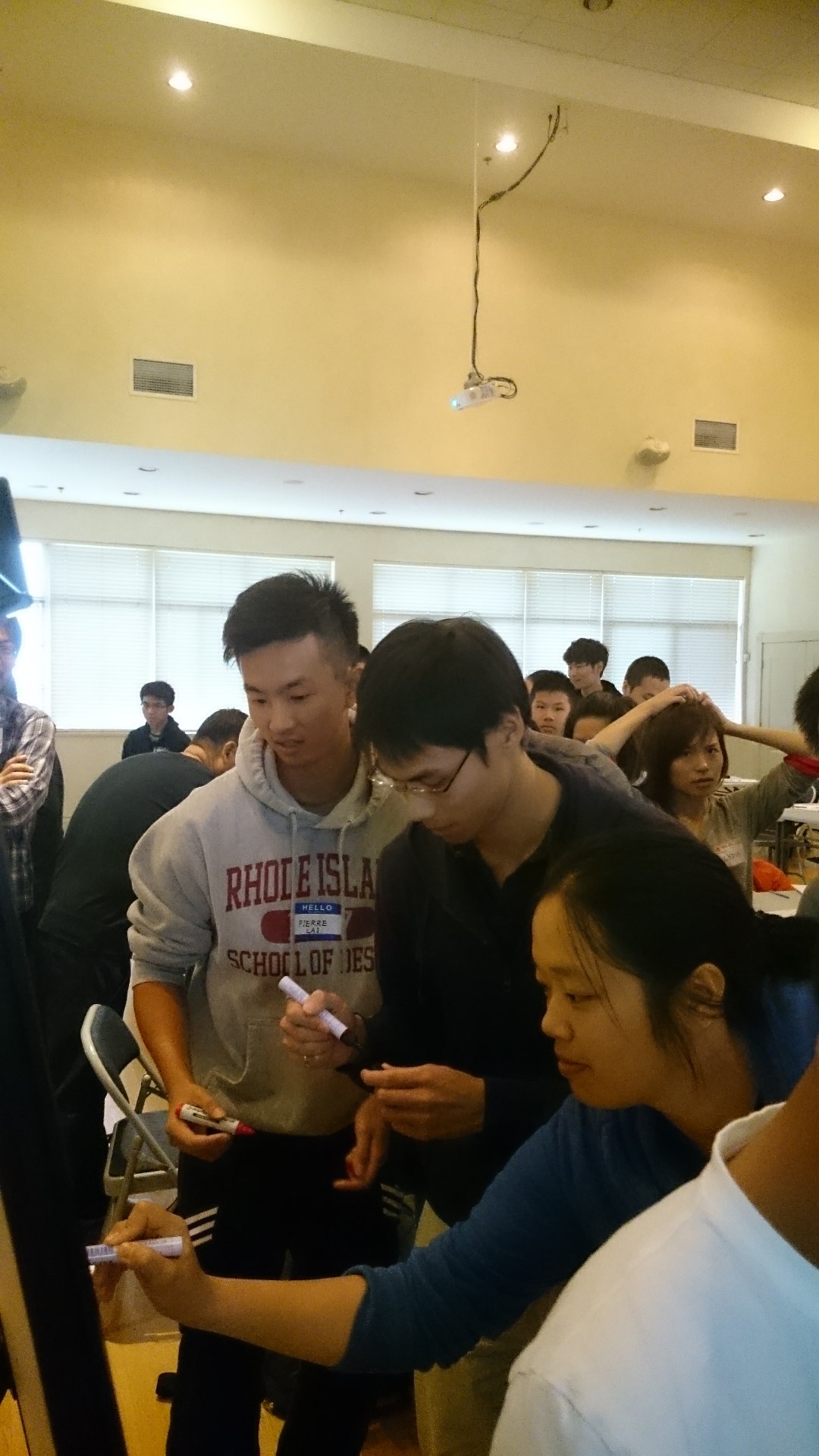
Here is how it went. The last exercise from Alan was to ask each of us pick a project out of 5 choices and form a team. The projects were designed for people with different talents, ranged from making dumplings to creating a new song. I understand the goal was to find one that matches my strength, however I’ve focusing on Dharma practice recently, so I decided to apply some Zen spirit in it. In a kind of funny way, I was telling myself, to show I’m the best at zen among these young people, I need to be the most self-less! So I decided to wait until everyone picked what they want, and pick what was left. I was a little worry what if I picked one that stress me out, but I overcome the worry by telling myself that temple is such a safe environment and there were 3 jewels( Buddha, Dharma, Sangha’s) protecting me and so what do I need to worry about, right? So I picked the project that had the least team member.
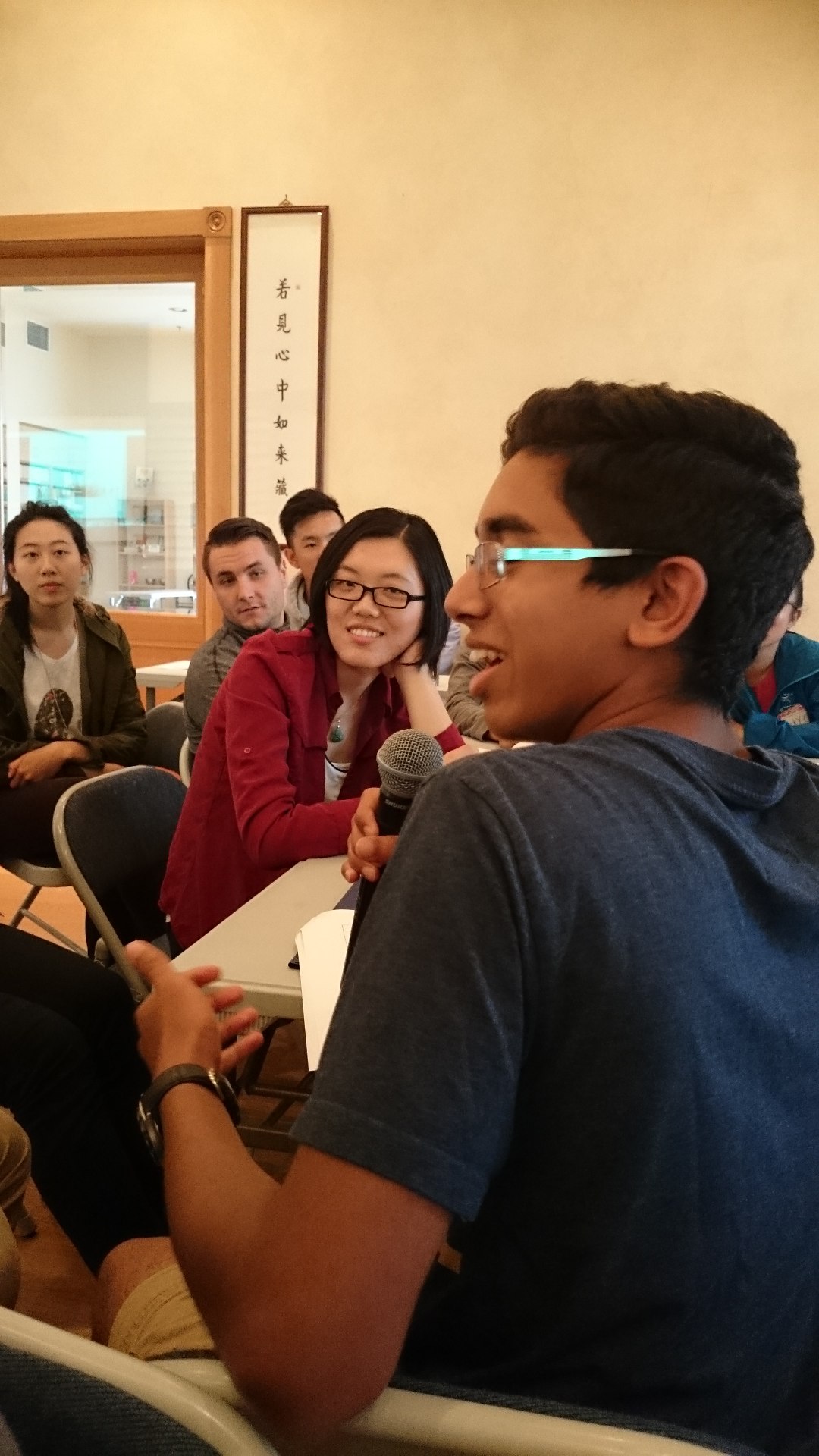
I picked the project that requires creating a “skit” without even know what the word “skit” is. After I picked the project and I googled this word “skit” and I started to panic. One of my biggest fear is public speaking, and now I need to not only speaking but acting on the stage in front of everyone. It felt like one of my worst nightmares. It’s going to be really AWKWARD! I pretend to be ok and working with the rest of the team members, but inside I felt extremely anxious. I suffered! Thanks to the meditation training I had, at least I was aware that I was suffering. Then in my mind, I start to pray to Guanyin Bodhisattva (Avalokitesvara) which sometimes are known in English as the Mercy Goddness (It is what the Buddhists do when they need some spiritual support. It is like crying for Jesus when in danger for the Christians). It started to help a bit and I felt a bit more calm. After that, I started to remember what Dharma Drum Mountain had taught me – the method which can be summarized by being aware of ourselves and the surroundings and live in the moment! So like how I was trained, I started to direct my attention to my breathing, my body sensation while I was working with the team members ( I had good amount of training in sitting meditation, walk meditation and I practice them daily, but usually in a calm environment).
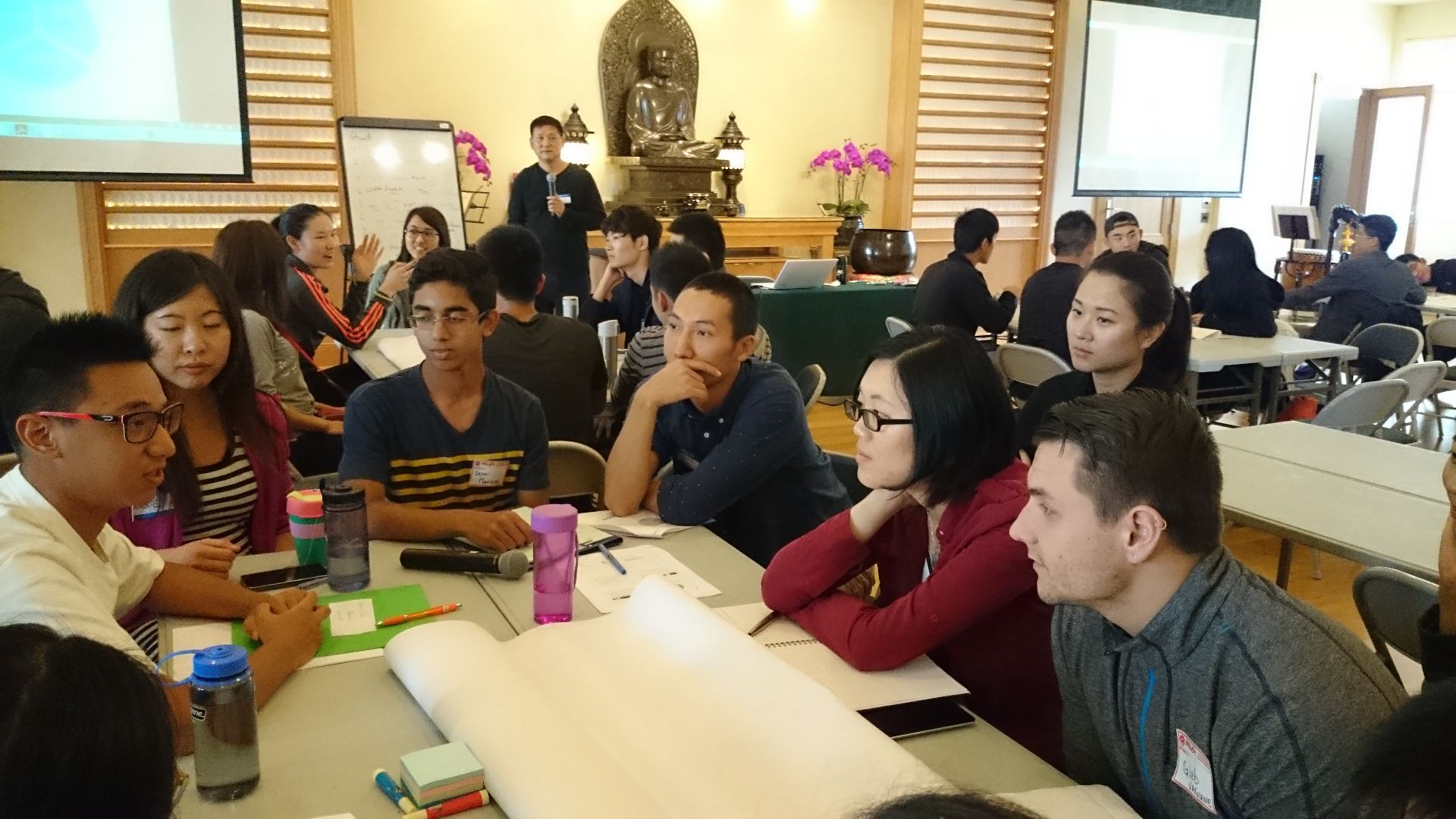
I also started to work on my intellect to convince myself that this worry isn’t necessary and not wise. I tried to remind myself what I’ve learned from Buddha’s teachings such as the delusion of ego, impermanence(Anicca), and acceptance. To be specific, I tried to direct my attention from myself to other people – everyone is so busy worrying about their own part and few people actually get to pay attention to me. If I focus on helping them to achieve perform well rather than myself performing well, it takes a lot of anxiety off me. Secondly, I used what Master Sheng Yen said about acceptance. Instead of resisting the situation which is try NOT to be awkward, I accepted it. I decided to show compassion towards myself and tell myself it is ok to be awkward on the stage if that’s my weakness! Combined with the method, my mind slowly recovers towards its equanimity state. And I started to feel calmer, being more in the present and seeing the situation more clearly. Until I started to remember the theory that Alan taught earlier – how to cover the weakness using strength. One of the strengths I think I have is “creativity”. In particular, our theme of the skit was to demonstrate how body language and tone of voices are an important portion of verbal communication. Long story short, it turns out that I can use my AWKWARDNESS to very well demonstrate how a communication without appropriate body language and tone of voice can be ineffective. As a result, my AWKWARDNESS on the stage got the message of the skit across and also entertained the audience. As far as I knew, few people or even no one noticed the fact that I was REALLY awkward and nervous. It worked out perfectly.
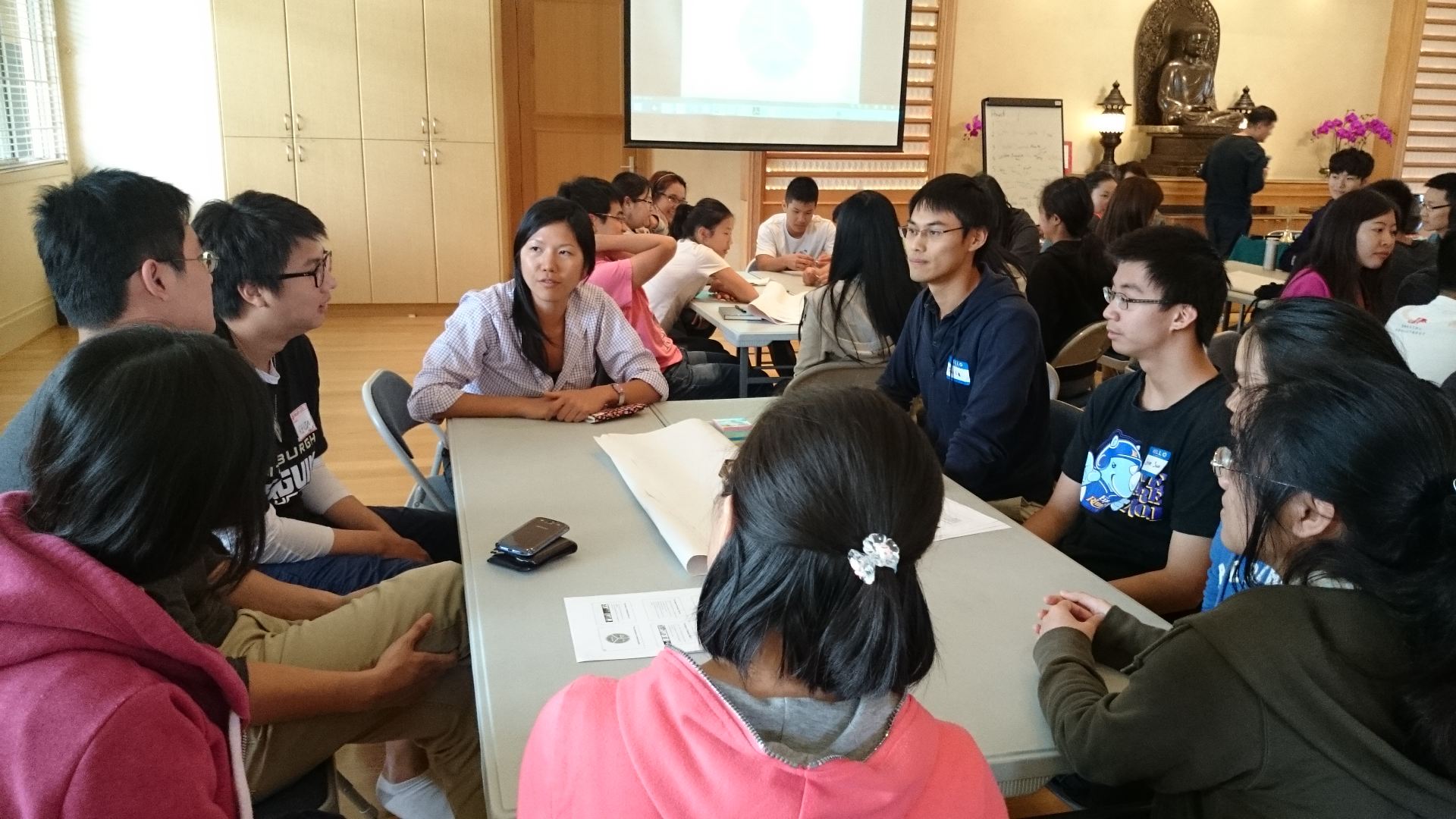
In conclusion, I’ve been in the workforce in a while, and I’ve been practicing Dharma for nearly 2 years, and I had been growing these two separately. My biggest take away from this workshop is to actually see what happens when these two meet. I’m delighted to see that Chan(Zen) can be applied anywhere. More importantly, I felt so grateful and lucky to have been able to be protected and nurtured by the three jewels (Buddha, Dharma and Sangha’s). I felt like my path has been pulled towards the brighter side which it is hard or impossible to do by myself. The benefit I’ve received from Temple events like this are priceless. It’s beyond what words can describe. Don’t take my words for it. Try an event like this and you find out yourself!
Workshop Report by Tim Dai